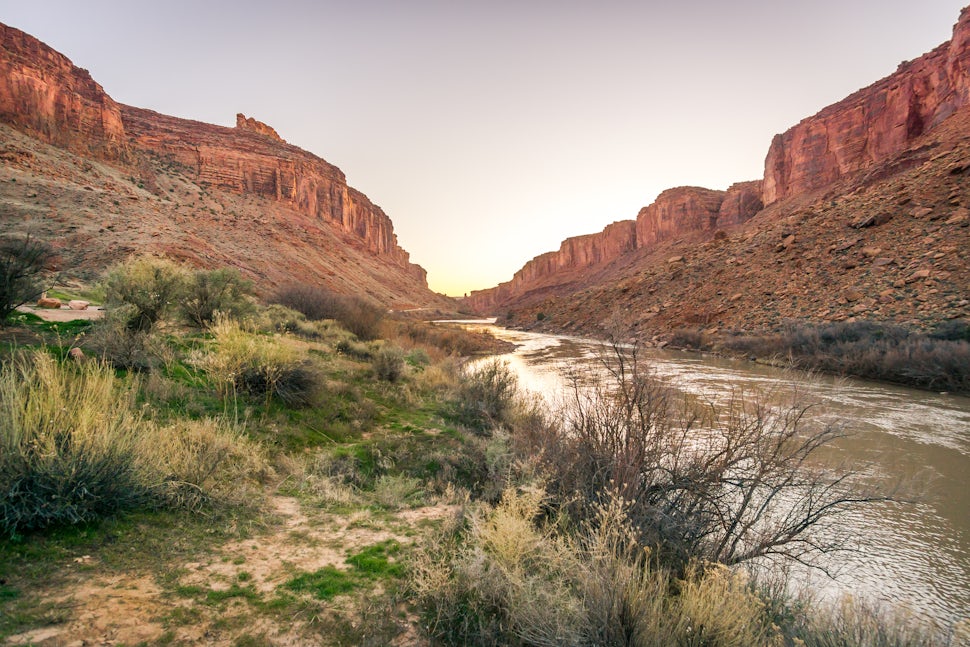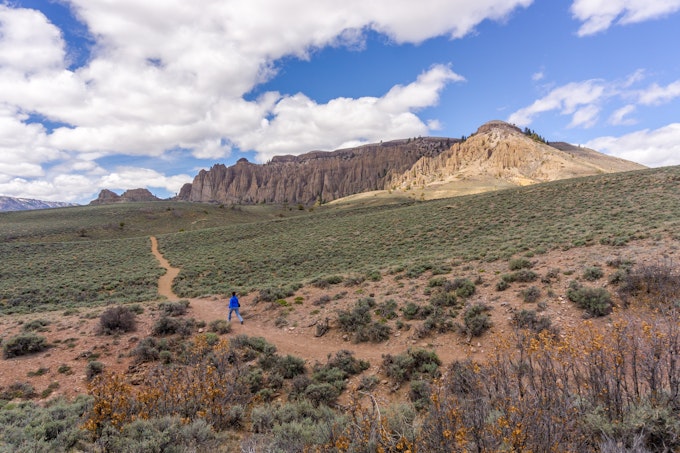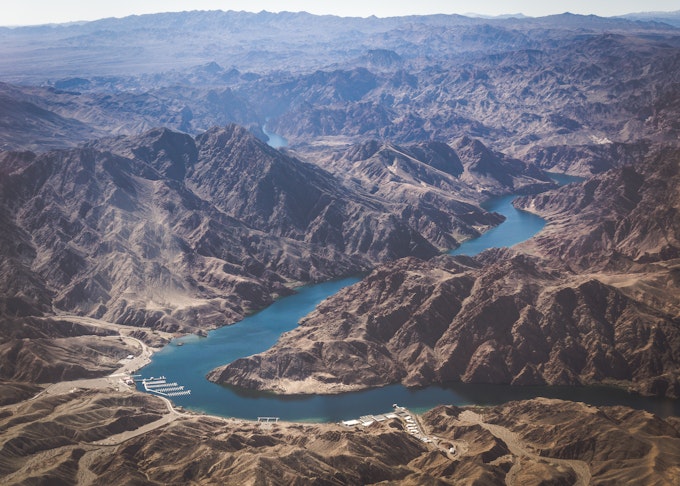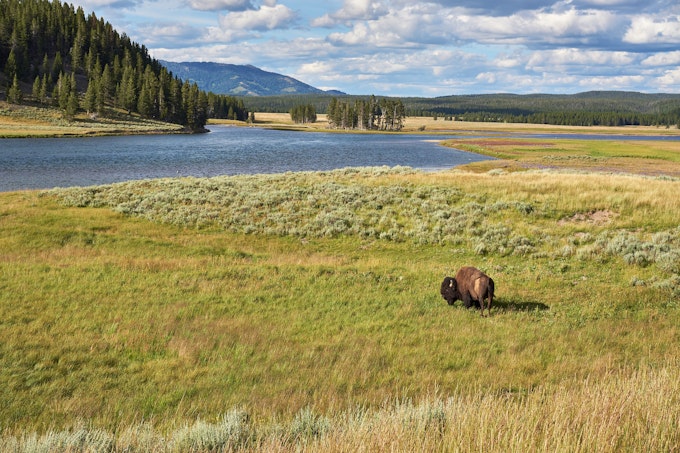Why the BLM's Methane Rule Needs to Stay
Congress wants to lift rules that limit pollution from gas and oil companies operating on public land. Here's what you need to know.

On February 3rd, 2017, the United States House of Representatives voted to advance House Joint Resolution 36 (H.J. Res 36) to the Senate. Now, the task is put before our senators to decide if they should utilize a seldom-used tool known as the Congressional Review Act (CRA) to repeal an important rule implemented by the Department of the Interior designed to reduce harmful air pollution.
That rule, championed by former Secretary of the Interior and onetime REI CEO, Sally Jewell, was designed to limit the emissions of methane from gas and oil wells located on federal and publicly owned lands. The U.S. Bureau of Land Management's Methane Waste and Prevention Rule would update the more than 30-year-old oil and gas production rules and bring them more in line with modern technological advances in the industry.
The Methane Rule, enacted in mid-2016, sought to prevent private energy companies from wasting energy resources that belong to the American public. Although it was the result of years of work within the Department of the Interior as a response to the Obama administration’s promise to reduce greenhouse gas emissions, the rule has lately been criticized by GOP lawmakers as a last ditch effort to hinder production within the oil and gas industry. Now under provisions of the CRA, the Senate can vote to repeal this rule and prevent the BLM from enacting similar rules indefinitely.
So what does this mean to the outdoor community? Well for starters, it means that land that is publicly owned can still contribute to the pollution of our atmosphere and the advancement of climate change. During the operation of oil and gas wells, large quantities of natural gas are vented or flared, the practice by which drillers burn off excess natural gas produced at the site. This results in large amounts of methane, a greenhouse gas 25 times more potent than carbon dioxide, to be released into the atmosphere.
The Methane Rule would require energy companies to limit waste as a result of flaring or leaks and would charge them with implementing technology designed to capture natural gas that would otherwise go wasted.
Commonsense says that it’s a huge benefit to the American people to both reduce emissions that worsen climate change and implement practices that would reduce wasting natural gas at well sites and put that natural gas into use. According to the BLM, the Methane Rule would eliminate the emissions of roughly 900,000 vehicles per year. Additionally, it would save natural gas that would otherwise go wasted, enough is squandered every year to power a city the size of Chicago.
However, Republican leaders and oil and gas companies would lead you to believe that this rule would hurt the industry, cost Americans jobs, and increase the cost of oil and gas. Fact of the matter is that this couldn’t be further from the truth. Using conservative assumptions, the BLM estimates that the benefits felt under the rule would far outweigh its costs. Royalty revenues are lost when natural gas is wasted as the result of flaring, venting, or leaks; states, Tribes, and federal taxpayers lose those monies when this happens. A recent study estimates that eliminating this rule would cost the American people almost $800 million over the next decade. Furthermore, similar measures have already been implemented at the state level with great success. The State of Colorado has a similar rule for gas producers and production is at an all time high.
Fiscal implications aside, the main focus for the outdoor community should be why we aren’t holding energy companies that operate on our public lands to a higher standard. Public lands managed by the BLM are just that: public. Yes there are fantastic deposits of oil and gas located on public lands, but if we are going to allow private companies to extract those resources then we deserve the opportunity to tell those companies they need to be doing it responsibly and sustainably. What good is making a dollar now when the effects of these drilling operations will be felt by the environment for years to come? As outdoor enthusiasts, don’t we have an obligation to ensure that our public lands and our environment will be intact for future generations to enjoy?
The scientific community is in huge agreement that climate change is real. We must do all that we can now to start mitigating the effects of climate change and implementing commonsense practices that will reduce future emissions. The opposition to the Methane Rule from the current administration is confusing, and quite frankly, hard to justify. Why hamper the BLM and the Department of Interior to manage the oil and gas well it leases? Why is there a war on environmentalism and conservation in favor of deregulating energy companies? Why side with the oil and gas companies to allow them to make an easy buck when it hurts the land, water, and air we so dearly cherish?
On February 3rd, 2017, those who voted in favor of H.J. Res 36 in the House sent a clear message that they side with oil and gas rather than with protecting our environment and public lands. If this issue is something you care about, then we at The Outbound Collective urge you to contact your members of Congress. If you don’t know who your members of Congress are, please head over to www.whoismyrepresentative.com. Simply enter your zip code and the site will provide you with the names of your representative and two senators.
So far H.J. Res 36 has only been voted on in the House, if you’d like to find out how your Representative voted on the resolution, simply look for their last name on this roll call http://clerk.house.gov/evs/2017/roll078.xml. If they voted “Yea”, congrats! Your representative is on the right side of this issue, please call or write them to congratulate and applaud their vote. If they voted “Nay”, express your disappointment and urge them to reconsider on future legislation. Emails are good, but phone calls are even better.
The really important work comes in calling your state senators and urging them to vote “No” on H.J. Res 36. The vote will be coming up soon so it’s important that our voices be heard loud and clear. Regardless of whether your senators are Republican or Democrat, you must remind them that you oppose any legislation that harms the environment or threatens our public lands. Voting no on this resolution preserves the BLM’s Methane Rule and will help reduce the emissions of greenhouse gases. Resources for how to contact your senators can be found here: https://www.senate.gov/senators/contact/
When contacting your senator, call both their D.C office and their local office nearest you (local office locations and phone numbers can often be found on the senator’s webpage). When calling the D.C. office, ask to speak to the staffer in charge of issues related to natural resources. Remember to be civil and polite when talking to these staffers, they may not hold the same views of the senator for whom they work, they are simply there to do their job. Remind them that you are a constituent of the senator’s and that you strongly oppose repealing the Methane Rule under H.J Res 36. Ask them to vote “no” on the resolution. It may take a while to reach a real human, especially when contacting the D.C office, but persistence is key. Don’t give up if you get voicemail or a busy signal on the first call. Make your member of Congress listen to you. Ask when the next town hall will be or if the senator hosts tele-townhalls where you can call-in.
It may seem like a lot of work to call your senator, but the reality is it’s quite easy and only takes a few minutes out of your day. Change will never come if we don’t hold our elected officials accountable and remind them that they took an oath to serve their constituents and fight for the good of the American people. With persistence and dedication, we can make our voices heard! So get out there, pick up the phone, and call your senator!
We want to acknowledge and thank the past, present, and future generations of all Native Nations and Indigenous Peoples whose ancestral lands we travel, explore, and play on. Always practice Leave No Trace ethics on your adventures and follow local regulations. Please explore responsibly!
Do you love the outdoors?
Yep, us too. That's why we send you the best local adventures, stories, and expert advice, right to your inbox.










